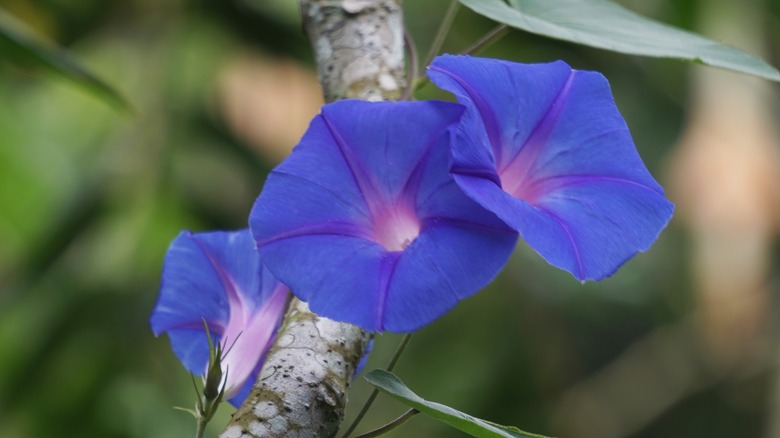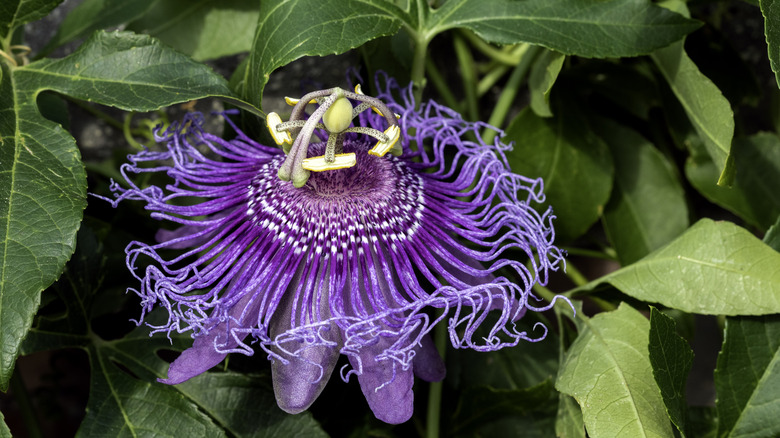Morning Glories Are A Favorite Of Hummingbirds, But Know This Before Planting Them
What's not to like about beautiful morning glory vines? After all, not only are the blooms beautiful, but they're also adored by hummingbirds. Unfortunately, for all the wonderful traits, morning glories can also be quite invasive and are even considered noxious weeds in some states.
Morning glories' (Ipomoea spp.), fast-growing vines, and willingness to reseed themselves can be as much of a curse as a blessing in many areas. On the bright side, it isn't difficult to successfully grow morning glories, but once you do, you may never be rid of them. While there are some varieties native to the United States, many other species, including the popular garden variety Ipomoea purpurea, are not and can quickly outcompete native plants in parts of North America. Even when the plants are grown in containers, they often drop seeds below them. While this can usually be manageable in colder regions where the plants grow as annuals and the vines die once temperatures drop, many species can perennialize in zones 10 and higher, making removal far more challenging.
Morning glory alternatives that hummingbirds love
If the most widely available morning glories are too invasive to be responsibly grown in your region, that doesn't mean you have to give up on your dream of a beautiful hummingbird-attracting vine. You, instead, may want to consider trumpet vine (Campsis radicans). Not only is the vine, which is hardy in zones 4 through 8, native to the Southeastern US, but the musical-sounding flower also attracts hummingbirds to your yard.
Another fascinating North American native vine to consider is the passionflower vine (Passiflora incarnata). Like the trumpet vine, it is native to the Southeastern US and is a hit with hummingbirds and other pollinators. Hardy in zones 5 through 9, the gorgeous vine boasts unique purple flowers and can even bear edible fruit.
Coral honeysuckle (Lonicera sempervirens) is also a brilliant option for anyone searching for a native vine with plenty of hummingbird appeal. Hardy in zones 4 through 9, coral honeysuckle is adored by a variety of pollinators and is seldom bothered by deer. It's absolutely one of the best native plants to grow in the Southeast, and thanks to its salt tolerance, it even makes a good choice for gardeners on the coast.

